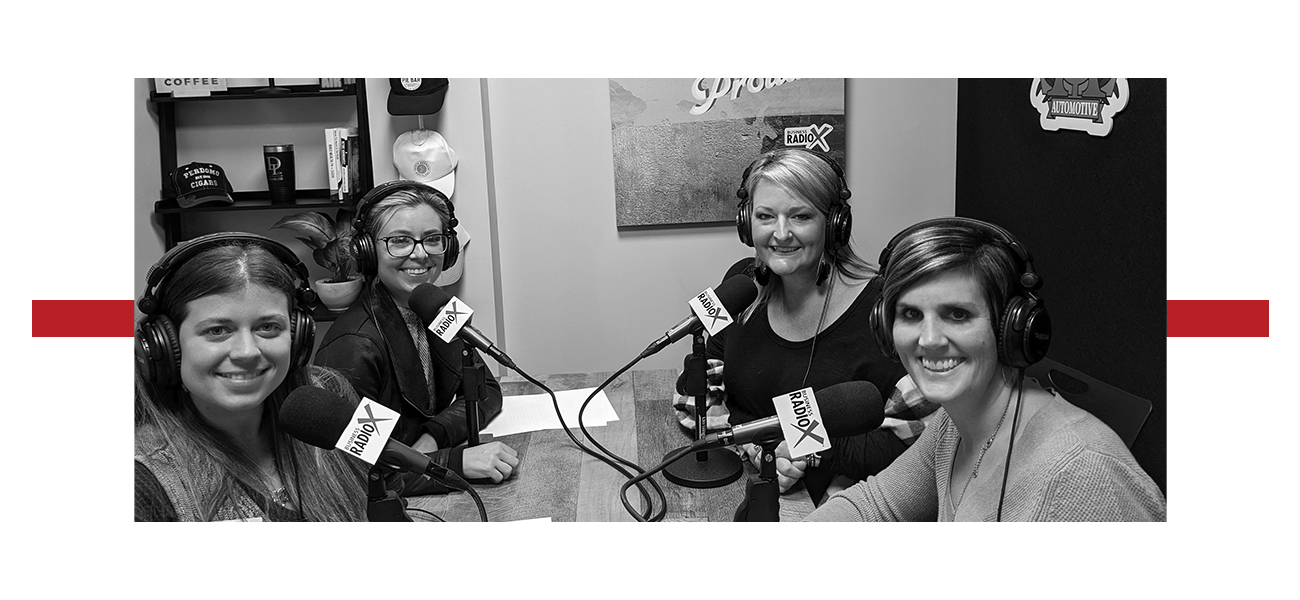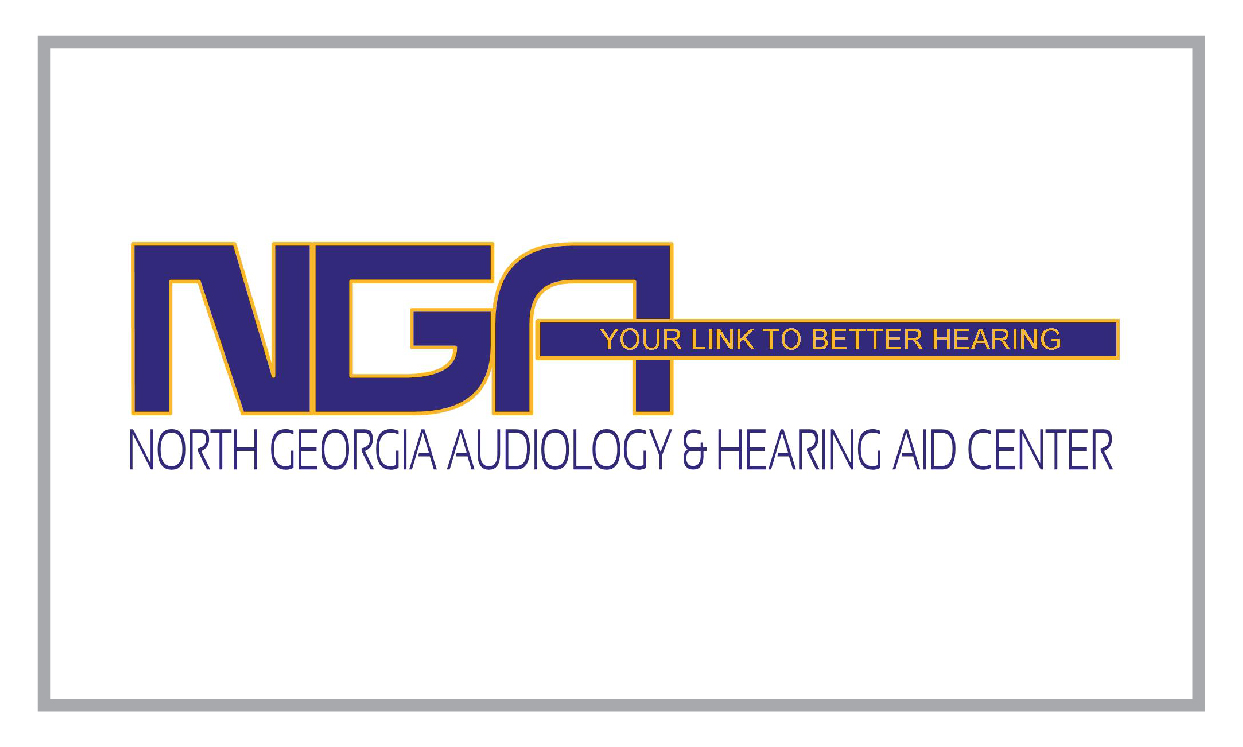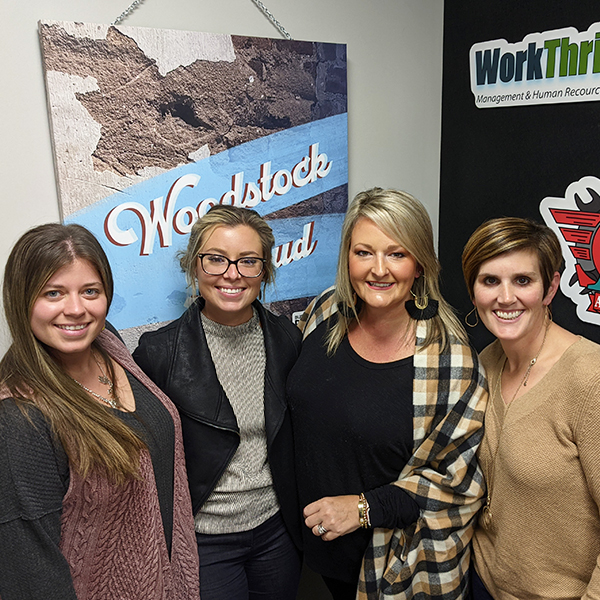
This Episode is brought to you by
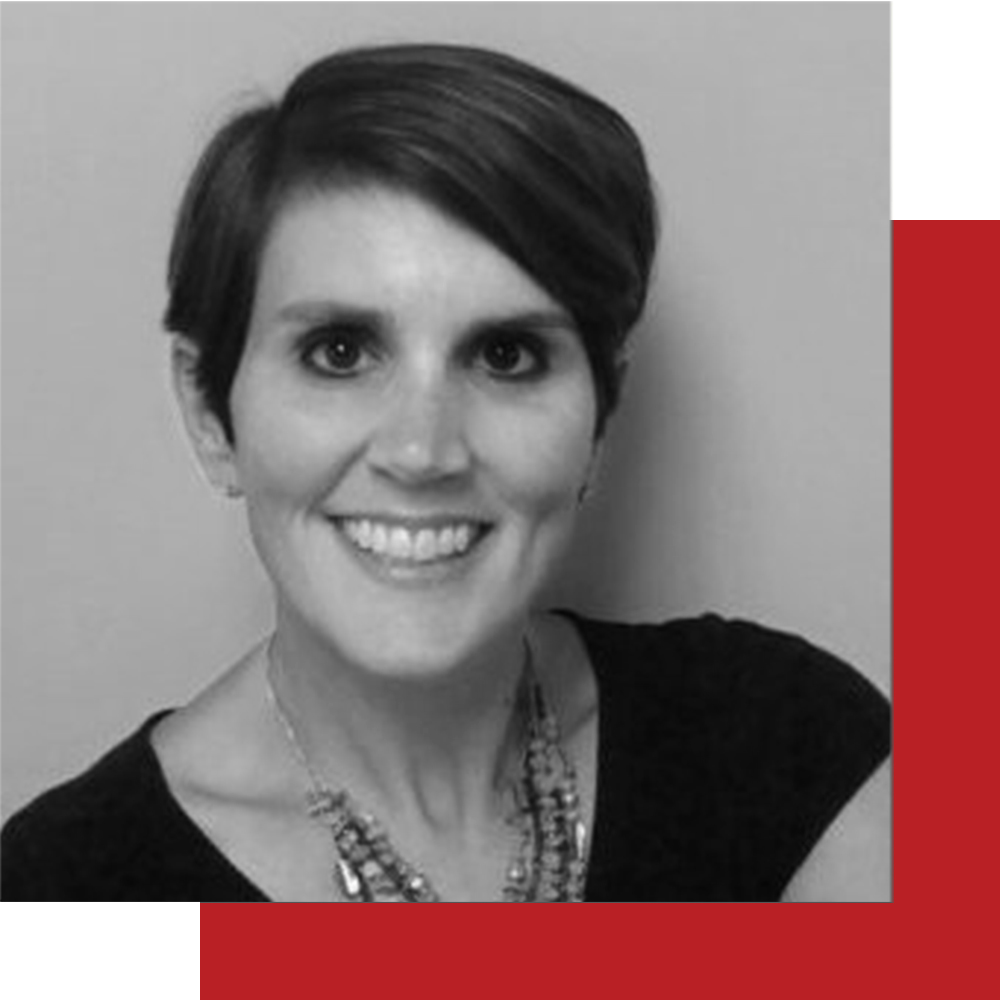 Kristi Estes, Co-Owner at In Harmony Pediatric Therapy and Owner of Rising Stars Children’s Therapy, Inc
Kristi Estes, Co-Owner at In Harmony Pediatric Therapy and Owner of Rising Stars Children’s Therapy, Inc
Kristi is the owner of the Occupational, Physical, and Speech therapy counterparts of In Harmony Pediatric Therapy. She graduated from the University of New Hampshire in 2000 with a Bachelor’s degree in Occupational Therapy. She has been practicing in the area of pediatrics since then, both in clinic and home environments. Kristi has special training in feeding, use of Therapeutic Listening, Handwriting without Tears, and Rhythmic Movement Training (RMTi). Although she used to treat more full time, the growing business has turned her focus to managing day to day business decisions, marketing, business development, and making sure families and therapists are happy.
Kristi loves owning a clinic and living in Cherokee County, and is excited for what In Harmony will offer in the future. In 2017, Kristi was awarded Enjoy Cherokee Magazine’s “Top 10 in 10” in Cherokee County as well as Georgia Trend’s “Top 40 Under 40” Recognition. She is also a graduate of Leadership Cherokee Class of 2018. When not working, Kristi enjoys spending time with her family and friends and loves to travel.
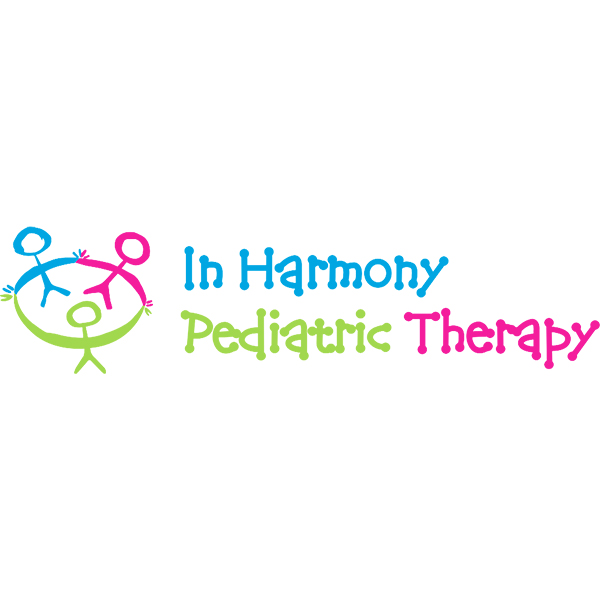 Connect with Kristi on LinkedIn
Connect with Kristi on LinkedIn
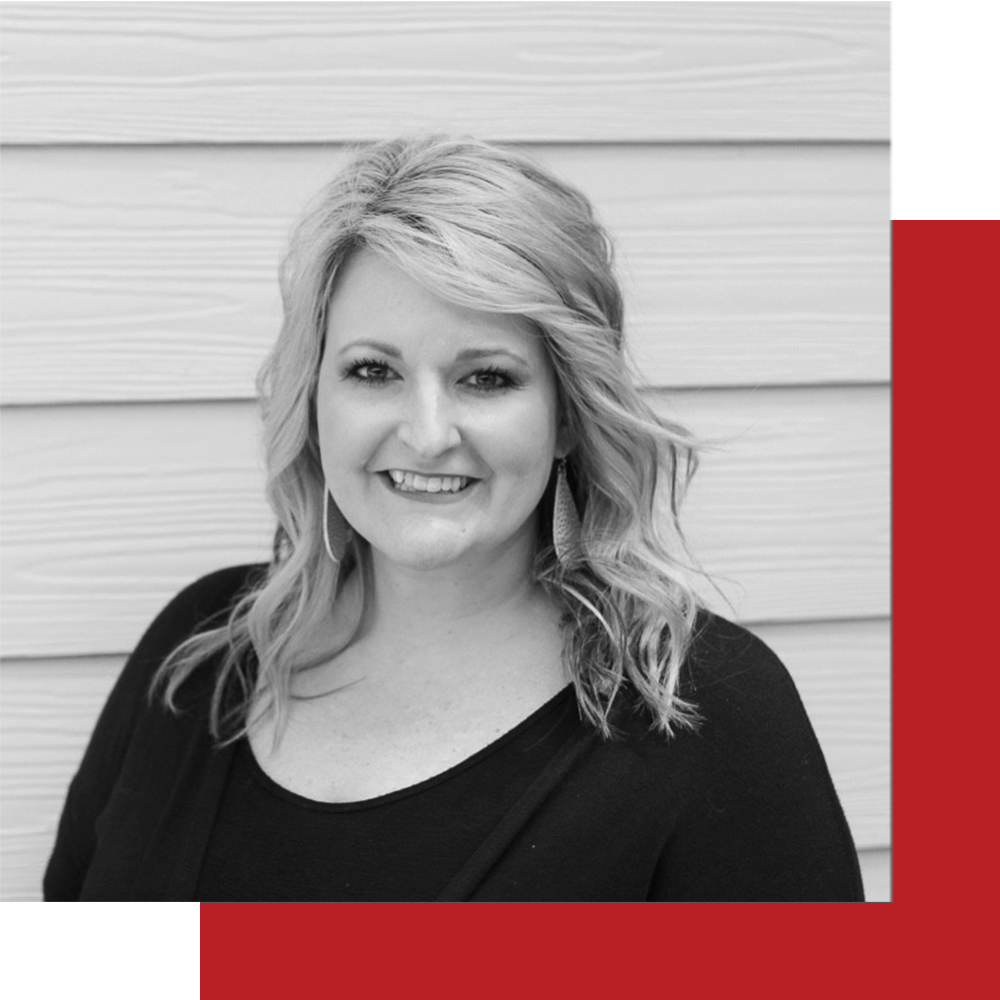 Jennifer Puckett, Co-Owner at In Harmony Pediatric Therapy and Owner of Therabeat Inc.
Jennifer Puckett, Co-Owner at In Harmony Pediatric Therapy and Owner of Therabeat Inc.
Jennifer completed her music therapy degree at the University of Georgia. She remained in the Atlanta area for her music therapy internship with the Fulton County School System, working with children with special needs. Jennifer resides in Cherokee County with her husband Brian, and their three children Carlynn, Brinlee, and Walker.
Her credentials include: Member of the Music Therapy Association of Georgia, American Music Therapy Association, National board certification in Music Therapy, Georgia Music Therapy License, Music Therapy Internship Director 2011-Present, Neurological Music Therapy Certified, Early Intervention Specialist, Therapeutic Listening Program Certified, Infant Massage Trained, Kindermusik Educator, Reimbursement Chair of the SER-AMTA (Southeastern Region-American Music Therapy Association), Serves on the AMTA-MTBO-(American Music Therapy Association Music Therapy Business Owners Task Force), Appointed to the Music Therapy Licensure Advisory Committee by the Georgia Secretary of State 2014-present, Active Member of the Cherokee County Chamber of Commerce, Cherokee County Chamber of Commerce Leadership Class of 2017-2018, Enjoy! Cherokee Top “10 in 10 Young Professionals” 2018, Georgia Trend 2018 “Top 40 Under 40” , Cherokee Chamber of Commerce Chamber Council 2019-2020, Member of the Canton Rotary Club, and currently serves on the Cherokee Chamber Board of Directors
 Connect with Jennifer on LinkedIn
Connect with Jennifer on LinkedIn
 This transcript is machine transcribed by Sonix
This transcript is machine transcribed by Sonix
TRANSCRIPT
Speaker1: [00:00:08] Broadcasting live
Speaker2: [00:00:09] From the Business RadioX Studios
Speaker1: [00:00:11] In Woodstock, Georgia. Welcome to women in business where we celebrate influential women making a difference in our community. Now here’s your host.
Speaker3: [00:00:29] Welcome to Cherokee Business Radio, I’m your host, Megan Porter, and I’m here today with Dr. Hayden Nunn. I’m the practice manager for North Georgia Audiology, and Dr. Hayden is our lead audiologist at our Woodstock location. We are so excited to introduce our women in business series. Our objective is to educate our wonderful community on the allied health professions and the very talented, knowledgeable women who run them here. Today I have Christy Estes and Jennifer, a.k.a. Jen Puckett, co-owners of In Harmony Pediatric Therapy. Both accomplished women have so kindly volunteered their time to share with you all the many aspects of their careers and how they are both helping to make a difference in our community, in health care. So let’s just start today by you guys telling a little bit about yourself, and I am super interested on how you guys formed the Harmony pediatric and how you became as big as you guys are today.
Speaker2: [00:01:21] Yeah. Well, hi, friends, I am Jenn Puckett. I grew up in Cherokee County and I graduated from UGA with music therapy dogs. Duke Get Out did my internship in the Fulton County School System and then started working for a private practice. And I’ll bring Christy into this because I was open my own practice in 2005 and I was in homes doing all in-home therapy and doing some schools and some other things. And a lot of the families had Christy as their occupational therapist, and so I was their music therapist. So we got to know each other through coach reading and then would come in and coach treat for some kids together. And so over the years and a big, tall cerveza at Viva Mexico in one meeting, we said, Hey, let’s open a clinic. So Christy,
Speaker1: [00:02:24] So I had a home based therapy practice doing just occupational therapy, and then I added speech therapy. So music therapy only seemed to make sense to all of us partnered together, and I moved from Marietta all the way up to Canton so far up north here in the boonies. So. And I’m Jenn, and I kind of parallel a lot with kids and I just said, why are we driving 400 miles a week like this makes no sense when Canton has nothing like it around here. So again, over a large cerveza, we we decided to open a clinic. We decided to open the first of three locations clinics in Harmony Pediatric Therapy. So when I say first of three locations, we don’t have three locations. We moved from a small location to now our big location.
Speaker4: [00:03:11] So that’s awesome. Tell me a little bit more about kind of your practice and what all happens there. Like, walk us through a day to day and just kind of.
Speaker2: [00:03:20] Well, we are so, so fun. I like to get it out of the way first. But we work really hard to serve families in this community. I care deeply about this community. And Christi, after moving here, has it’s it’s like she’s a Canton night now. Sure. But we wanted to serve families and we wanted to make it easier because when you get whatever diagnosis you get, it is overwhelming. It’s earth shattering for parents. And so we wanted to make that process easier for them. And so our clinic has I’ll talk about the music therapy. We have music therapy where we work with Eddie bodies all the way to older adults and even into end of life. And we work many populations there in between. So therapy is the music therapy company. So we the is part of in harmony pediatric therapy. But we also go outside of the clinic and we serve in schools and other facilities. That’s why there’s two kind of separate companies within our clinic together. But inside the clinic, it is very fun and we work in harmony a lot. There’s a lot of code treats, particularly with physical therapy and music therapy. We do a lot of co treats, so you’ll one of the things I have to teach my interns is how to walk backwards with a guitar while you’re not running into walls, when you’re working on gait training because you’re focused on the patient, but yet you know you’re trying to lead them and motivate through that rhythmic training and the music.
Speaker1: [00:04:49] And then I run Rising Stars children’s therapy, which is within in harmony. So in harmony is composed of two different companies under one roof. And it just worked that way beautifully because we both had our separate companies doing home based therapy. And then we kind of merged and made this mother company, I guess, over the two. So I run the occupational, physical and speech therapy parts of the company, so we also work very closely together. Most of our clients come from more than one therapy, which is pretty amazing and very convenient for the families. We do partner a lot again with music therapy, but the best thing I can say about our building in the day to day is that we’re not just therapists and our kids are not our clients. They’re literally part of our own harmony family and we celebrate births. We celebrate milestones. We celebrate families moving, getting married, you know, whatever may happen, we celebrate so much with our families, not just they don’t just come in the door or get therapy and leave. So I will probably say that’s probably one of the biggest successes with it. Within in harmony is how Jen and I have made it a community and not just a place. You come for an hour a week and then leave.
Speaker3: [00:05:54] So, yeah, when we did that lunch and learn last year, we walked into your building and it was very inviting positive environment everywhere. You could tell everyone was there was had a smile on their face and the best part, I think you brought your puppy, Oh, Mary Jane. And I was like, Oh my gosh, they have an office dog. We have a theme going on here. And so I just wanted to like prop you guys on the environment you created inside of in harmony because it is amazing.
Speaker4: [00:06:21] It really is, yeah, I can attest to that, too. Like even even all the kids that were getting the therapy were having a blast and you could tell and like normally, kids don’t really like going to therapies or doctors, but all of those kids are smiling that day.
Speaker2: [00:06:35] And I would just add our goal is to like, walk through life with the families as much as we can. So a lot of Christie and I, we do a lot in the community, but it all comes back to how we can serve our families better, whether we’re trying to find a new crib that will let you know nji tubes go through or whether we’re trying to find new adaptive equipment for a family like that becomes a big part of our days as well. But it’s an honor to be able to work with these mamas because we both have kids. I have three Christie, you two two. Yep, and it’s it’s an overwhelming world with all these little little jokers running around. And so you throw in medical needs on top and it’s just a lot, a lot.
Speaker4: [00:07:21] But you guys do a good job at making it not stressful.
Speaker1: [00:07:23] And I appreciate you noticing people smiling because I do have we do have clients often say, when you walk into this building, everyone is smiling and I smile all the time. I’m kind of like that movie elf. You know, I’m always smiling and I feel like it’s a huge. I guess takeaway for families to see even our staff, I mean, they seem happy, I hope they are happy, so we try to make it a happy place to be.
Speaker3: [00:07:44] Yeah. For those of you that don’t know Chrissy and Jen outside like I know them because of orange theory, and Kristy always has a smile on her face and I’m just like, How are you smiling? Right now I’m dying while I’m over there on the floor.
Speaker2: [00:08:00] So we like to tell everybody how fun we are. Yes.
Speaker1: [00:08:02] Yes, it is a good time.
Speaker4: [00:08:05] So you you also do teaching there, too. Tell me a little bit about your experience with interns and kind of how that works.
Speaker2: [00:08:13] Yeah. So we will actually start number thirty four and thirty five in the music therapy realm of interns. So they are with us for six months and they come from universities all over. Right now, we have one from Georgia College and one from a school in California. So they come from all over the U.S. and we work hand in hand with their university to make sure their goals are met. But it is a process we kristie just me going through the last ring. We had tons of interviews come in and we picked two. So we’re proud, but it’s it’s a team effort. Our team is amazing and it’s a very teaching facility throughout. We have a lot of students.
Speaker1: [00:08:55] Yeah, from an OTP speech standpoint, we get interns. We only have 12 week interns from the colleges and we have like right now, we have four at the same time. So my therapists are working with four different students and this is so they can graduate similar to Jen’s, but hers are six months. Ours are 12 weeks and they kind of hop around to different places. But aside from just college based students, we get a lot of high school students, a lot of just pre college students or students looking to go to grad school, and they need ours. I probably get, gosh, 20 20 emails a week asking for volunteer hours because we have a good reputation and is a great place to learn. So I apologize to anyone who is emailing me. I don’t get back to you. It’s hard. It’s very difficult to get through them all and to pick people. But you know, we have we try to be a teaching facility. We couldn’t be where we are without mentors when we were back at that age. So, you know, we’ve got to give back to the community.
Speaker4: [00:09:45] That’s awesome. I really I really appreciate that coming from having to do that myself too, because audiology, you have to have an internship for a year and where you go in that placement that you get makes all the difference. So and I can already tell you guys are probably some of the most awesome mentors these students have ever had.
Speaker2: [00:10:03] So yeah, definitely.
Speaker4: [00:10:07] So tell us a little bit more about what it’s like being a business owner. So walk us through kind of all of the behind the scenes that people don’t really think about. So you’re in the clinic and then you also are running a business, too. So what are some challenges that you faced with that?
Speaker1: [00:10:26] I mean, I’ll start with this. I would probably say people think running a business is easy and as you can say, oh, people. And also they think, Oh, you run your own business, you must be a multimillionaire. Yeah, that’s kind of what people I feel like think, you know, and the first, gosh, five years of our business were hell. I mean, just to say, honestly, it was really, really difficult. You’re not making any money. Every penny you’re making is going back into the business. You’re trying to find the right staff. You’re trying to manage procedures. Yes. Trying to find the right people. Trying to train. Dealing with all the things you’re doing wrong and trying to make them right. Also managing your own family, your own children, your own, you know, partners and whatever and friends. But I will say, I think now I could probably run it in my sleep. But it took we’re 13 years in, so it took 13 years as a partnership. And prior to that, you know, another several years before we even opened the clinic. But I feel like we do a really good job. We are business partners. We’re best friends, our families are friends like we do it really well. And I think now I’ve been able to prioritize and have a really much better work-life balance than I did. Gosh, the first eight, seven, eight years.
Speaker2: [00:11:40] And I got to add, you never know for us if we chasing a rooster out of the backyard, they climb the fence from the neighbors hard hit by a car and the rabbit got hit by a car right in our lobby snake. We just pulled out. I was
Speaker1: [00:11:57] Leaping over
Speaker2: [00:11:59] A snake, checking on the AC units while Christie’s on FaceTime, telling me to keep going. It’s fine. So I’ll tell you one of the challenges in that is owning a business and the building and the property, because now we’ve purchased and we had to go through all the zoning and all that fun. But it was a sort of we both say it was an identity crisis going from being full time treating therapist for years. As we were opening, we were working thirty two point thirty six trading hours a week to plus having our kids and then we were having meetings. I think that’s where the hell came in because I don’t know how we did.
Speaker1: [00:12:37] Hired a lot of surveys, a lot of time.
Speaker2: [00:12:40] I mean, we worked well through that process, but it was just a lot of work and so going from being a full time treating therapist because we will both tell everybody we were a damn good therapist. And now the challenge is we’ve got all the other distractions coming in. I’ll be treating and somebody’ll knock and say, I can’t get the air on, you know, other issues that happen. So I had to considerably take down my caseload. And that was hard because we we are music therapists, occupational,
Speaker1: [00:13:10] Big identity crisis, you know, kind of trying to figuring out, I always say what I want to be when I grow up. And the same thing goes with people keep saying, Can you please open a satellite? Can you please open a satellite? I have therapists begging me to open one, you know, downtown, and I have to say, stop and say, Where do I want to be when I grow up and what do I want to focus on? And sometimes I feel like when you do too much, you lose sight of what you what you set out to do. And I think our building and in harmony right now is such a great thing that I fear doing too much will ruin what we have. So, you know, I keep telling people I’m not opening satellites right now, like what we got is really good. I feel like I am where I want to be when I grow up and I’ll kind of expand more into the community stuff and, you know, things like this. And but, you know, we get asked that a lot. Open a new location, please close to us. You know,
Speaker2: [00:13:58] It’s just a lot. Our season alive, too. I mean, she’s got two kids. I got three. Like, we own the move between dance, cheer and basketball and golf and piano and all the activities the kids do, plus their own medical stuff that comes up that I’ve got to maneuver through. And so it can be a lot. But the greatest thing is when you walk in the clinic, it’s a great place to be. Now Kristi and I are, we have a good time, 24 seven. But walking in the clinic, I Jen, I am genuinely happy to see everybody. My team rocks are. I mean, from the time you walk in and see Cindy to walking, you know, working with our billing managers, everybody rocks.
Speaker4: [00:14:41] So building managers, you guys take insurance. Yes, that’s awesome. Yeah, I bet that helps out a lot.
Speaker1: [00:14:46] A lot. It definitely makes you jump through a little more hoops insurance. But obviously families can’t always afford to pay out of pocket. And so yes, we do take most insurance covers, most of our therapies.
Speaker2: [00:14:58] Yeah, music therapy is a little trickier. I’ll put in this plug because we get super frustrated. Aetna Cigna United usually tend to cover Blue Cross Blue Shield of Georgia. Hello, where you have friends, I’ve been hunting you down for years and we need to talk because you all represent. Most of our teachers in the county have Blue Cross, and it does not cover music therapy. Also, a mirror group. Well, care. There’s Medicaid that is covers music therapy and other states not in Georgia yet. So we have actually been walking that the past few weeks and I feel like we’re close. But it is. That is another aspect that I’m working on is reimbursement. So for music therapy, we partner with the duet project, which helps fund because I’ve told Christy for years, I don’t want music to be the rich kids therapy, right? And so we’ve worked really, really hard over the years and gotten, I think, $38000 now in scholarships to fund for our kids.
Speaker4: [00:15:53] Gosh, that’s amazing music therapy. That’s amazing. Megan can attest to the insurance reimbursement. It’s awful. It’s horrible.
Speaker3: [00:16:00] And I’m going after Blue Cross Blue Shield as well.
Speaker4: [00:16:03] How are you? Yes.
Speaker1: [00:16:05] And you would think hearing is so important in life, right?
Speaker3: [00:16:08] And what’s sad is that Medicare doesn’t even cover or have any coverage for hearing aids.
Speaker1: [00:16:13] So they just
Speaker3: [00:16:15] They help with testing. And that’s it.
Speaker1: [00:16:17] Oh gosh.
Speaker4: [00:16:18] So we understand your frustration. We got you, OK? Tell us a little bit more, Jen, about your music therapy and kind of what a typical therapy session looks like for music, because I know there’s a lot of people out there that don’t really know, you know, they hear music therapy and the only thing they think is like instruments. So tell us a little bit about kind of what all goes into music therapy and how you’d said that. Yes.
Speaker2: [00:16:42] So every session is completely different. Music therapists are board certified and licensed in the state of Georgia. You have to have your license. That is huge. I can give other examples, but I won’t yet. But music therapy, we take an evaluation which printed is fifty two pages. So we’re looking at fine motor, gross motor, socially emotional, academic, cognitive, all the aspects that make up the whole person. And then we develop our goals and objectives, much like the other therapies. And then we fine tune a session plan. So generally, there’s a hello intervention that just helps get everybody regulated. And then we like to move our bodies. We kind of go with the levels of play for most if we’re talking to the pediatric world. We go into like a hello. Then we go into a movement and then we start finding fine tuning what we’re working on, so it’s very different. Some have sound sensitivities. You know, if we’re I know your is hearing impairment, that is a completely different population that we need to cater. Sessions different for everything is mostly live music or rhythm based. Very specific to that. And so we are every week fine tuning what that looks like. But everything is measured and we use music to work on nonmusical goals. That’s the big the big go home with
Speaker4: [00:18:07] Big take away. Yeah. And then from your perspective, Chrissie, your occupational speech and then what was the physical physical? So. Wow, that’s that’s a lot. It’s a lot of different things. Yes. Yeah. Tell us a little bit about kind of how you set up your sessions with Oti and Pete and SLP.
Speaker1: [00:18:24] So I’ll start with speech. I mean, we work with anything from kids that just can’t say their hours or their torches or LS all the way to kids who are, you know, tube fit or tricked and are learning to eat again. So you’ll see really the gamut. We work with pragmatic language, which is learning how to speak socially in social situations for a lot of kids would say autism. We work again with articulation, just working on just typical kids who can’t, can’t pronounce some letters. We do a lot of feeding, a lot of oral motor work. We work with a lot of language, which is different than speech. Language is more understanding W.H. Questions Who, what, when, where, why? A lot of that kind of stuff is in speech. From a physical therapy standpoint, we do a lot of coordination. We have so many kids that their motor coordination is so challenged and we kind of may call. Some of them just are quirky kids or those kids you see on the sports field that just can’t seem to catch or throw a ball very well. There’s nothing really wrong, no diagnosis, just kind of weakness or coordination issues. We do a lot of young kids with, you know, walking and crawling and sitting and rolling just basics a lot of $230, which is babies that are born with a tilted head and they have a tight muscle in their neck and we offer stretches and things like that. A lot of babies actually crazy enough. I think COVID caused a huge influx of $2.00 babies because moms sat a lot during COVID and didn’t move. So sadly enough, well, not sadly enough. But ironically enough, we have tons of new babies coming in to college, so moms get up and get moving while you’re pregnant because it can definitely
Speaker4: [00:19:52] Be so interesting that you say that because my next door neighbor actually she had a baby during COVID and the baby had to work all this. It’s insane.
Speaker1: [00:20:01] I think we have had close to maybe 60 70 referrals just in the last few months with babies who are born with protocols. They usually turn out OK and everything was fine. But those first few months, we got to get them in there. And then from OT standpoint, we work a lot with sensory, sensory based therapy, which is a lot of movement dealing with kids who are ADHD, who can’t handle loud noises, who can’t handle a lot of overstimulation. We work with just basic fine motor skills, strengthening handwriting, strengthening hands, coordination, balance, vision, tons of vision. So it kind of is such a wide variety of things we do, and it’s hard to describe it. Put it in like a short sentence as to what we do, but we really help kids. The occupation of a child is what they do from pretty much the time they wake up in the morning till the time they go to bed at night, anything that they can’t do during those hours. We help with. We also do a lot of sensory feeding kids that are picky eaters. We do that through OT as well. So it’s kind of a wide, wide array, and I feel like it doesn’t always. People don’t really understand OTT because it can really work on so many different arenas.
Speaker4: [00:21:06] Wow. And so, yeah, like my mouth is open because I can’t even fathom a day like that. Like, you guys have to think on your feet. Oh Lord, oh my gosh, you got to be really creative, too. Well, our therapists,
Speaker1: [00:21:21] I mean, I walk into our gym. Sometimes they have these things set up and I’m like, How did you guys are so smart? You know, these this team is they’re just so creative and so smart, and the things they come up with just survive. And yeah, they do it together is huge.
Speaker2: [00:21:37] You can walk around our clinic and you can hear therapists that share a patient talking about new ideas. What did they do today? You know, you go into the kitchen and I love to listen. It’s fun, you know, I’m like, Oh, what are we doing now? And so I would say collaborative is really what helps make us successful. But our patients the most successful?
Speaker4: [00:21:58] Yeah. And it proves for a really good time to I think, Oh, they go there
Speaker1: [00:22:03] And our clinic is so colorful and we have tons of equipment and suspended equipment for sensory
Speaker2: [00:22:08] Areas.
Speaker3: [00:22:09] We have a big fish tank all that last time and I was like, Oh,
Speaker1: [00:22:13] This is awesome. The kids love
Speaker2: [00:22:14] It. That was my like goal was for kids to walk in and put the iPads down. That could be a whole nother soapbox that go on on iPads and technology over use. But. They walk in and they can why they’re so enamored by the fish, I mean, we have we have washed the cushion, replace the cushion, we have all the things because that’s where they want to be.
Speaker4: [00:22:34] That’s amazing. Yeah. You have the saltwater tank. These are fresh water tanks.
Speaker2: [00:22:39] There’s a reason for that. Saltwater tanks, the fresh water will actually like socialism or socialize with people. Then the waters hide from their predators. So we wanted fish that would come out and be like, Hi,
Speaker1: [00:22:54] Friends, yeah. So when you walk up to the gas, when you walk up to the glass, the fish literally congregate to you. So the kids are like, Oh my gosh, all these fish and then our fish keep having babies. So we are really sushi.
Speaker2: [00:23:07] They turn out really cute. Yeah.
Speaker1: [00:23:09] So there’s all these baby fish and the kids have to find them every time, and it’s really great. So it’s just fun.
Speaker3: [00:23:15] Oh my gosh, you really have thought of everything.
Speaker1: [00:23:18] We try. I wouldn’t even think of that. Wow. After you moved a third time to a third building, we literally, I think, thought of everything this
Speaker2: [00:23:24] Time, plus two women designing. Come on.
Speaker4: [00:23:27] It is very colorful, I do have to say. So walk us through probably one of your most challenging patients. What’s what’s one of the hardest things you’ve had to deal with?
Speaker1: [00:23:37] It’s actually probably a kid. Jen and I treat it together, and she can tell the story because she tells it so amazingly.
Speaker2: [00:23:42] Yes. This guy was on the autism spectrum and really was just very lucky. I mean, his heart was just big, deep down, but he had a history of very aggressive tendencies. He had pulled a scarf on a therapist, which, you know, ended up being like a string like move. I believe, you know, unintentionally, it was just he was mad and he would eat glasses.
Speaker1: [00:24:13] Well, our therapist said we don’t know what to do with him and Jen, and I said, we got we’ve got got this one. We’re going to we’ll take him over.
Speaker2: [00:24:20] We got into by glasses like reading glasses. He would chomp on them and paper it. He really just didn’t know how to integrate the world at all. And so Kristi and I would get her. We would do our deep breathe right before we’d be really calm and we could get some really beautiful moments from him and really, we’ll get him regulated. And he loved music. He loved rhythm. And I still have on my wall. He ended up going to a different school. He’s he’s older now. This was many years ago and I still have on my wall in my office a little note. That’s love and in his handwriting from him. But we had some stories. He he was a challenge and we would clear the room when we would work with him. But nobody else wanted to work with him. And Kristi and I were like, Well, we’re really good at what we do, so let’s let’s do this.
Speaker1: [00:25:13] I think he did eat my glasses that session. Yeah. So pulled him off my head and I was pregnant at the time. So Jen’s trying to protect me from, you know, being attacked. But we we laughed and we were like, We’re going to we’re going to be successful. It took us a few times, but we didn’t give up. I mean, and I can remember. I honestly think it was one of the few times I was a little bit nervous to start a session like not knowing what’s are we going to get beaten up today or are we not? So we we did a I mean, we did
Speaker2: [00:25:43] A really good nonverbal, but we would get him so he would sing songs for us. Once we got him regulated, he was just so disregulated with the world. So once we got him regulated and we were all safe again, we would clear the room. We got some really beautiful moments and we’re like, Look, we don’t want to push away the kids that nobody wants to work with. So instead of putting our therapist at risk, Christi and I jump in there.
Speaker1: [00:26:11] It happens sometimes where if we have a really aggressive child, we jump in and because I don’t, you know, we don’t want our therapists. If we get hurt, we get hurt, but we don’t want our therapists to be hurt. So I mean, we can I can remember we have another child who was a runner and this child decided to curse us out and run out our front door. Well, we used to have our old building was on one 40 by Harmony and the Lakes, and he ran out the front door onto the top of the hill and threatened to run across the street
Speaker2: [00:26:36] And stood there and told us,
Speaker1: [00:26:37] Oh, and curse us out and told us how he was running across the street. And we’re just like, Oh my gosh, what are we going to do? Because we, if we trigger him, he’s going to run. And I was like, I don’t remember his name, Joe. I was like, Joe, why don’t you come back? I have some Skittles, like I have Skittles. He’s like cursing me. I don’t like Skittles. So I think we ended up finding five dollars and buying an eye, a quick buying an Apple iPad game. And we’re like, Look, we have your favorite games. Oh, OK. And he came back and I think we both took like we thought we and his moms out there, and I think he ran from his mom. Actually, yes. After the session, and we oh my gosh. So sometimes we live on the edge and we never know, and some kids are beautifully great. And the next day something happens that we don’t know and they snap and something like that happens. So we just keep our fingers crossed every day that you know, that never, never is never
Speaker2: [00:27:28] Boring, never do. In turn, I feel like we have to in. We see some of the most beautiful moments, too. Oh, Chris, you and I have watched kids walk for the first time, talk for the first time. I’ve heard kids sing their name and music therapy for the first time. Like, that’s what keeps us moving.
Speaker4: [00:27:46] That’s amazing. Oh, it makes my heart. So I know. Ok, well, Megan, I’ll pass it over to you.
Speaker3: [00:27:53] So what would be the best referral source for you guys?
Speaker1: [00:27:58] My biggest referral source, because we take most insurances is a pediatrician, we get tons of referrals from local pediatricians and just also word of mouth.
Speaker2: [00:28:07] Yeah, neurologist yeah. One of ours is word of mouth. That’s the greatest because our our greatest testimony is our family’s lives. And when mamas are going on the book face and talking about how their kids’ lives were changed in sessions. That’s our highest compliment. Yeah.
Speaker1: [00:28:28] Parents have, you know, we get Google reviews and things like that, and to have a review come through is probably one of my shining moments, and I always send it to my therapist who they text on the weekend. If it comes in, I’m like, Did you see this? Or like Cherokee? There’s a new Facebook page called Cherokee Connect, and when something our name will be on there and I’ll like screenshot to Jen anytime our name is somewhere that we don’t expect even 13 almost 14 years in. Like it brings the biggest sense of accomplishment because you like to think you’re doing well. But when you hear someone say you’re doing well, you just it will never get old.
Speaker2: [00:29:03] It makes never getting out of the lobby days worth.
Speaker1: [00:29:06] Yeah, it makes all the nights when the alarm company calls and the alarms going off. 2:00 in the morning, you’re like, Oh my gosh, I got to get up and check the clinic. It makes all the heartaches and all the chaos and chaos can be good and bad. It just makes any any frustration. So worth it. And when you hear it there, I had a therapist just this morning. He came to me and he said, Christy, remember that boy? He’s fairly new. And he said, Remember that boy the other day that was running in circles. He’s like, Look what we were doing today and took a video and like the glee in his eyes, and he’s no who he probably knows who he is because the only male at our office, but the glee in his eyes, he’s like, Look at what he’s doing today and like just that stuff, watching kids succeed and watching the therapists get so proud. This many years in, like just still is why we do it.
Speaker2: [00:29:51] We take great pride because my kids, like at school, will go. My friend said, They go to your clinic too, and I clearly don’t tell them if I see their friend in the clinic, you know, they would have to tell them. But my own kids are so excited that because they think are places like Six Flags, right? You know, you can swing from swings and do all the fun things. So when their friends say they come to, it’s just the highest compliment.
Speaker1: [00:30:15] And our kids, so say our kids are exposing experiencing this world of special needs. And I feel like it’s such an area that can be so difficult for kids. So our kids have such empathy and such, you know? Graciousness for these children in their own schools, and you hear I’ll hear my daughter come home and say, Mom, I helped this little girl today. I think she’s got special needs and I helped her, you know, open her locker and I’m like, That’s what that’s our goal in life.
Speaker3: [00:30:39] So well, it’s extremely obvious the hard work and the love that you guys put into the company to what it is now because we like what I said before. It is an amazing environment when you walk in. So like, kudos to you guys. Yeah. Y’all are like the power duo and I want to be you guys when I’m older.
Speaker4: [00:30:57] Like for real. Can I see you when I grow up? Yes.
Speaker3: [00:30:59] Yes, yes. So how would we? How would a new patient reach out to you guys? What is your contact information?
Speaker1: [00:31:07] The best way is probably just giving us a phone call. Our website is always up to date. Our Facebook page is always up to date. Just literally reach out to us anyway. You can email phone call. Social media is fine.
Speaker2: [00:31:21] We have a process that’s really smooth and you know, it goes to intake and billing. And then, you know, we it’s what I would say. If somebody knows us, I’m like, Let me know you called because I don’t always know that. Yeah, so
Speaker3: [00:31:31] What is a good phone number
Speaker1: [00:31:33] Seven seven zero six eight seven two five four two or you could go on admin at in harmony pediatric therapy. Can email. Yeah, well,
Speaker3: [00:31:44] I really appreciate you guys coming in because you guys are such an inspiration. I see you guys out in the community all the time, and it’s always such a pleasure to talk with you all. Like when we were at Schmooze a Palooza, I was like, I get to talk to her, so I just want to thank you guys for coming. And Dr. Hayden and I are just very, very appreciative so that again, thank you for joining us today and thank you for everyone for taking time of your day to listen to our women in business series. Again, I’m Megan Porter. This is Dr. Hayden Nunn with North Georgia Audiology. Until next time, have the very best day.
